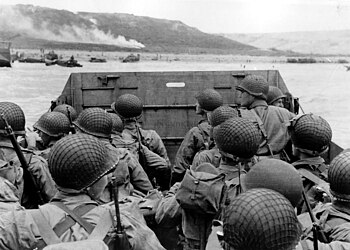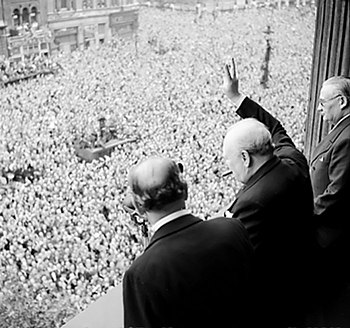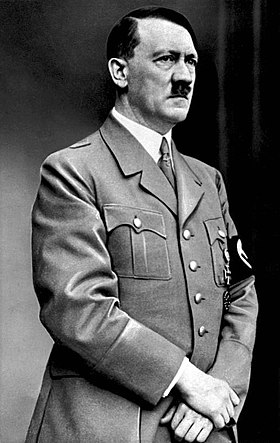Mistakes of World War 2
- Causes of the War
- The Mistakes of 1939-1940
- The Mistakes of 1941
- The Mistakes of 1942
- Mistakes of 1943-1945
This article is the last in a series on the most important mistakes that were made during the Second World War. By 1943 most of the mistakes had already been made which caused the Axis’ downfall. But they did make mistakes in the last part of the war that would influence the world for years to come.
 |
| Americans Land in Normandy |
Fighting to the Last
In 1944 the British and Americans landed in Normandy, France. After gaining a beachhead there they began to drive the German armies across France, Holland and Germany. At the same time, the troops that had landed in Italy in 1943 continued to push the Germans north in Northern Italy. At this point Hitler had two choices. He could order his troops at certain points to fall back so that they could organize and strike with a hard counter-attack, or he could stubbornly hold on to every inch of ground. He chose the second. This meant that although the Allies might have difficulty in conquering territory, they would not have to resist heavy and unexpected counter-attacks. He made this mistake continually as the war wound to a close. He refused to let his troops give up even an inch of ground, and instead he lost it all. He ordered one commander who desired to fall back to a stronger line, “The Fuehrer expects, now as before, the utmost steadiness in the fulfillment of your present mission to defend every inch of the North Italian areas entrusted to your command.”1 Hitler’s incorrect strategy led to the defeat of his armies, and he committed suicide on April 30th, 1945. Germany surrendered unconditionally on May 8th.
 |
| Winston Churchill with crowds on V-E day |
Communism
At the beginning of the war the Soviet Union was unfavorable to the British. They were siding with Germany, and almost became an ally with them against Great Britain. But then when Germany attacked them, they wanted to become an ally to the nation they were planning to attack a few weeks before. The British decided to ignore the political, social and religious differences between them and join with them to destroy Germany. But by the end of the war it became clear that unless the United States and England did something to stop it, Russia would make much of Europe their Communist puppets.
.jpg/300px-Lokajski_-_Powstancy_w_%C5%9Ar%C3%B3dmie%C5%9Bciu_(1944).jpg) |
| Polish Soldier Fighting the Germans during the Warshaw Uprising |
One of the first issues that came up was regarding Poland. Poland was one of the the first nations that Germany conquered, and many influential Poles fled to London and established a government there. But when the Soviets liberated Poland they set up a Polish Committee of National Liberation which were really just their puppets. England and the United States did not want communism to be imposed on the Poles, and the Russians agreed at the Yalta Conference to incorporate members of the London government into the new Polish government so that it would better represent the wishes of the people. They also agreed to allow Allied observers to enter Poland to report on what was happening there. However, they ignored their promises and set up a completely communism government in Poland.
These issues continued with the other nations of western Europe. The Russian strategy was described by Stalin when he said, “This war is not as in the past; whoever occupies a territory also imposes his own social system on it. Everyone imposes his own system as far as his army can reach. It cannot be otherwise.”2 Therefore what Winston Churchill described as an “Iron Curtain” came upon Germany because of the alliance that had been made in the heat of war and the failure of the other Allies to deny to Russia the right to overwhelm the other nations.
These problems between the United States and the Soviet Union resulted in the Cold War. While there were military conflicts which resulted from it, the United States and Russia never entered into a full scale World War. The problems existed until 1991 when the Soviet Union collapsed. All this conflict can be traced back to decisions that were made in the aftermath of World War II.
 |
| A Street in Berlin |
Conclusion
These mistakes from World War II that we have examined through this series of essays are not just interesting facts from a conflict that happened many years ago. Situations like these will happen again, and at that time it will serve us well to remember the mistakes that were made by leaders of the past. Those who fail to learn from the mistakes of their predecessors are destined to repeat them.
1. The Second World War – Triumph and Tragedy (vol. 6) by Winston Churchill (Boston, Houghton Mifflin Company, 1953) p. 522
2. A History of Modern Russia: From Nicholas II to Vladimir Putin by Robert Service Source. p. 305













